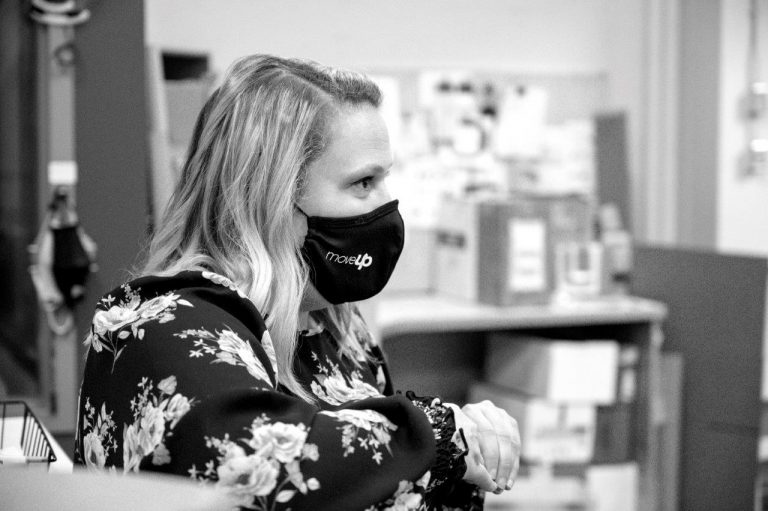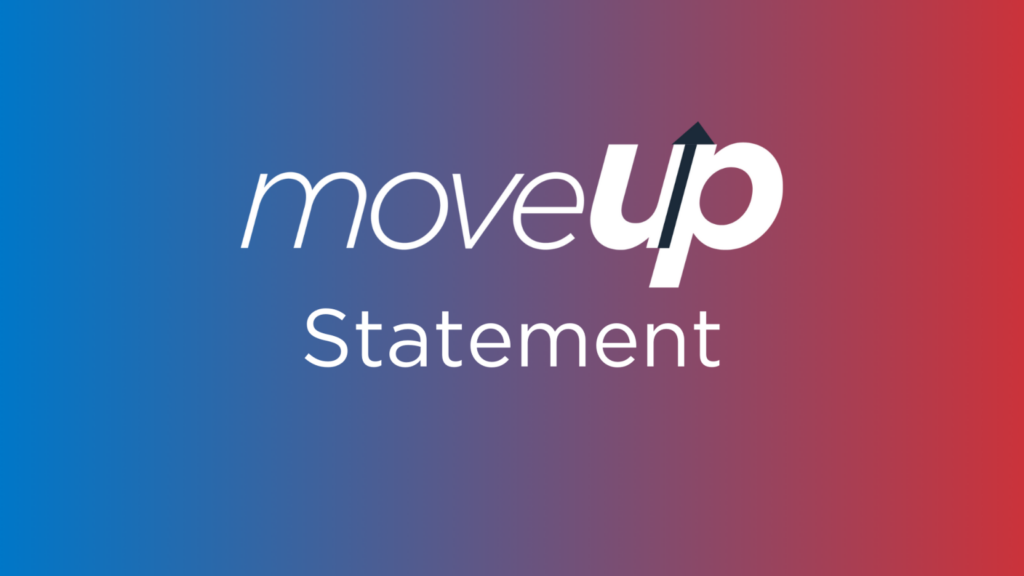WARNING: This story discusses the issues of depression, suicide and mental health
From MoveUP Vice-President Christy Slusarenko:
Over the past few weeks, our union has suffered the loss of two of our valued members. The loss of these members has been devastating and has opened many old wounds for myself and I wanted to take this opportunity to connect with all of our members as a way of healing but of also providing support. Please be warned that what follows below will address very sensitive topics, including mental illness, suicide, and death. If you are uncomfortable, please do not continue to read further.
We have all seen the memes. The ones along the lines of, “one year ago, it was our last normal week and none of us knew it!” I am sure many of you have seen posts of like that pop up on your social media feeds.
March 11, 2020 changed us all. For us at MoveUP, it meant scrambling to ensure our employers that were able to allow our members to work from home would do so. We did the same with our staff as well to keep them safe. Little did we know the weeks would turn to months to now a year.
Our President and Secretary-Treasurer recorded video greetings when the pandemic first hit, wishing everyone to stay safe and healthy. Our vice-presidents, including myself, sent bulletins to our units to let our members know we were thinking about them. These were small gestures, but I would like to think they were appreciated by our members in a time of such uncertainty.
Occupational Health and Safety committees across all workplaces worked overtime, rounding up PPE, creating safe work or return-to-work plans, but also making sure to remind everyone to practice self-care and the importance of mental health. They had no way of knowing, however, just how long we would be disconnected and isolated.
In the time since, the pandemic has taken its toll. Some of us have lost loved ones to the virus. Nearly all of us, due to time and distance, are feeling the pandemic’s impact on our own mental health and well-being.
The two members I mentioned at the beginning tragically took their own lives. Suicide is not heavily publicized in our movement for many reasons, including out of respect for the family, the privacy of the deceased, but probably often because of the stigma that comes with it.
I know we have members that believe such details should be kept quiet. I am, sadly, used to receiving many negative emails after we send out bulletins through various committees, and I expect I will receive my share of negative feedback from this post. However, I felt it was important to have this conversation and actively work to remove the stigma that comes with mental illness and suicide and provide my perspective as a suicide survivor.
On January 12, 2014, I attempted to take my own life. The depression and anxiety I had been fighting for three years won the battle in my head. I have no memory of my actions on that morning, only to know what I did left me spending three days in a trauma bed, one day in an emergency bed, and then a week committed to the psychiatric ward at Royal Columbian Hospital.
This story may come as a surprise to many, including some of my closest friends and colleagues. My increased profile now as an elected union leader means you will see lots of photos of me attending events, smiling, socializing at meetings, and generally being happy-go-lucky. But the truth is that those of us living with depression have learned how to fake a smile and mask what is truly happening inside our heads.
It is the stigma around mental illness that has made us experts on living this double life. I can tell you having depression, attempting suicide, and becoming an advocate for mental health has cost me friends and relationships.
Too many people are quick to judge. They don’t understand what we are going through because we “have a good life.” They will tell us to look at how “people have it way worse than you do.” But what they don’t know is we really can’t flip the switch and choose to be happy, just like someone can’t flip a switch and choose to not have cancer.
Our brains are wired differently. Medication helps. Therapy helps, but it doesn’t always last. I monitor my illness daily and work with my team of doctors to ensure I don’t slip into the low places. I made the choice after I was released from the hospital to learn, accept, and educate myself about my illness. I still have hard days and hard times and, without question, the pandemic has brought me close to the edge again.
I wanted to share my story with you all today to start the conversation. I want to show people that even though you can have a successful career with a job you absolutely love, you can still suffer with the darkness of mental illness.
I hope that by showing my vulnerability, you all will open yourselves up to listening, sharing, and supporting your friends, family and coworkers who may be dealing with mental illness. Most importantly, if you are ever in a time of need, please reach out to someone for help.
I am here for you. We are all here for you. You can reach me at cslusarenko@moveuptogether.ca.
Mental Health Resources
HealthLink BC
Crisis Centre
BC 211
Distress Line: 1-800-SUICIDE (784-2433)



